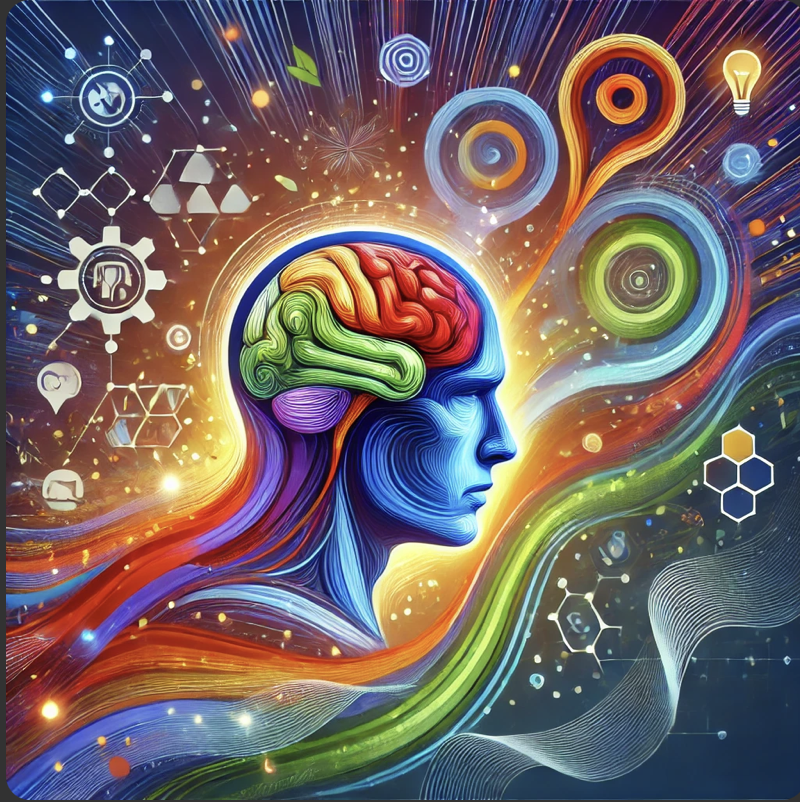Higher Vibes Coaching Blog

Coaches: Using the Narrative Coaching Model Through an Intersectional Lens
Traditional narrative coaching often focuses on individual mindset shifts without addressing systemic oppression. An intersectional approach helps clients reframe their stories while acknowledging external barriers, validating lived experiences, and fostering both personal and collective empowerment.

Coaches: Make the Be-Do-Have Model More Intersectional
The Be-Do-Have Model is often framed in a way that assumes everyone has equal access to the same opportunities, but that’s not the reality for people navigating systemic barriers due to race, gender, disability, class, or other intersectional factors. If coaches want to make it more intersectionality-friendly, we need to acknowledge privilege and structural challenges and redefine success beyond dominant narratives.

Three Easy Ways for Teens with ADHD to Stay Organized
If you identify with ADHD, staying on top of school projects and goals can feel impossible. Long to-do lists get overwhelming, deadlines sneak up, and sometimes, your brain just doesn’t want to start. But don’t worry—you don’t need a complicated planner or strict schedule. You just need a system that works for your brain. Here are three simple and ADHD-friendly ways to stay organized for short-term, mid-term, and long-term projects.

Eating Disorders, ADHD & RSD…Oh My!
ADHD, rejection-sensitive dysphoria (RSD), and eating disorders often intertwine, creating a relentless cycle of perfectionism, emotional dysregulation, and distorted self-perception. Learn how these overlap and some actionable coaching strategies to start to break free from this cycle.

5 ADHD Brain Hacks Using NLP: Boost Focus, Motivation & Stop Overthinking
Struggling with ADHD procrastination, focus issues, or mental spirals? These five ADHD-friendly NLP techniques will help you rewire your brain for motivation, stop overthinking, and activate hyperfocus on command—without forcing yourself into a neurotypical productivity mold.

How Coaching Helped Arjun Break Free from Family Expectations
Arjun, a high-earning Indian tech executive, spent years seeking his parents’ approval—until coaching helped him break the cycle. At a high-stakes family dinner, he finally asserts his independence, proving success isn’t just about legacy—it’s about choice.

The Dark Side of Coaching: Women Gatekeeping Women
Coaching promotes growth and inclusion, but behind the scenes, competition and quiet gatekeeping often tell a different story—especially for women of color. This is how a seasoned executive-turned-coach navigated subtle but persistent challenges from a fellow coach determined to keep control of the conversation.

Coaching Techniques for Finance Professionals
Finance professionals face relentless pressure, burnout, and identity suppression in high-stakes roles. This guide explores how specialized coaching can transform careers by addressing burnout, enhancing decision-making, and empowering professionals with tailored strategies for investment banking, trading, hedge funds, and more—unlocking sustainable success through resilience, clarity, and authenticity.

Dating Equity: Why Splitting the Bill Isn’t Fair (Even in Queer Relationships)
Splitting the bill in dating seems fair at face value, but it ignores the hidden financial, emotional, and societal costs that women—especially women of color—shoulder daily. True equity in relationships isn’t just about income; it’s about acknowledging the deeper investments and disparities that shape dating dynamics for both straight and queer couples.

The Hidden Cycle: How Abused Mothers Harm Their Children
When abused mothers lose control of their own lives, they often reclaim it through strict parenting, emotional manipulation, or overprotection—continuing a cycle of trauma. Explore how domestic abuse impacts moms, the hidden costs on children, and how to start to break free from generational patterns of control.

Why Getting an Adult ADHD Diagnosis Is Tough (And What to Do About It)
For many adults, the journey to an ADHD diagnosis is both frustrating and liberating—it provides long-awaited answers but also reveals the barriers to treatment and support. From struggling with focus, procrastination, and emotional overwhelm to navigating the complexities of online diagnosis and access to care, this guide explores why getting diagnosed is so difficult, what prompts adults to seek answers, and how to find the right resources for treatment.

When Social Media Feels Like Screaming Into the Void (And How to Keep Going)
Most social media users are lurkers, meaning low engagement doesn’t mean your content isn’t resonating—it just isn’t always visible in the numbers. Instead of chasing likes or virality, focus on consistency, psychological safety, and finding the right platform or community where your voice is truly valued.

Caregiving: The Unpaid Labor That Women Shoulder (And How to Set Boundaries and Reclaim Your Time)
Caregiving is unpaid, exhausting work that disproportionately impacts women, especially women of color, often forcing them to sacrifice their time, money, and well-being while society takes it for granted. Learn practical strategies to challenge this expectation, including how to set boundaries, push back against guilt, redistribute responsibilities, and reclaim your time—because caregivers deserve support, too.

Signs of a Fixed Mindset: How It Sneaks Up and Holds You Back
A fixed mindset isn’t just about resisting change—it’s sneaky. It disguises itself as logic, experience, and confidence, making you believe the problem isn’t you, but everyone else. If you consider yourself open-minded yet feel frustrated by constant change, this guide will help you recognize the hidden signs of a fixed mindset and how to shift toward growth.

ADHD Burnout: Signs, Causes, and How to Recover
Burnout isn’t just needing a break—it’s a full-body and mental shutdown that makes it hard to function at work, home, and beyond. For those with ADHD, burnout can hit even harder due to chronic overwhelm, emotional exhaustion, and executive dysfunction. Learn the key signs of ADHD burnout, why it happens, and actionable strategies to recover and prevent it from taking over your life.

How to Protect Your Mental Health on Social Media: Avoid Burnout, Bullying, and Overwhelm
Social media has become a breeding ground for online bullying, driven by politicians, algorithms, and an outrage culture that rewards negativity over understanding. Learn practical strategies to stay active online without feeling drained, overwhelmed, or pressured to perform for an audience that doesn’t deserve unlimited access to you.

How to Shut Down Unsolicited Advice and Micromanagement with Confidence
Some people believe they have the right to tell others what to do, but their need for control doesn’t mean you have to give in. Learn how to recognize and respond to unsolicited advice and micromanagement with direct, confident strategies that help you reclaim your autonomy and set clear boundaries—without unnecessary conflict.

Reclaiming Power: The Unlearning of Maya
Maya spent her life trying to be “good”—a good wife, a good daughter, a good survivor—until she realized that goodness was just another form of control, keeping her small and obedient. In breaking free, she unlearns the need for permission, silences the lingering voices of doubt, and steps fully into her power—not as a survivor, but as a woman who owns her own life.

Trauma-Informed Coaching: Language Matters
Effective coaching and leadership create a space of safety, trust, and empowerment—not pressure, dismissal, or forced healing. Certain phrases, even when well-intended, can come across as invalidating, triggering, or disempowering. This guide breaks down what NOT to say in coaching or leadership—and what to say instead to foster genuine growth, support, and confidence.

What Can Make ADHD Symptoms Worse?
While ADHD presents unique challenges, external factors can intensify symptoms, making daily life feel even more overwhelming. This guide explores what worsens ADHD symptoms, from stress and sleep deprivation to diet and environment, and offers actionable strategies to identify and mitigate these triggers—helping you regain control, boost focus, and restore balance.